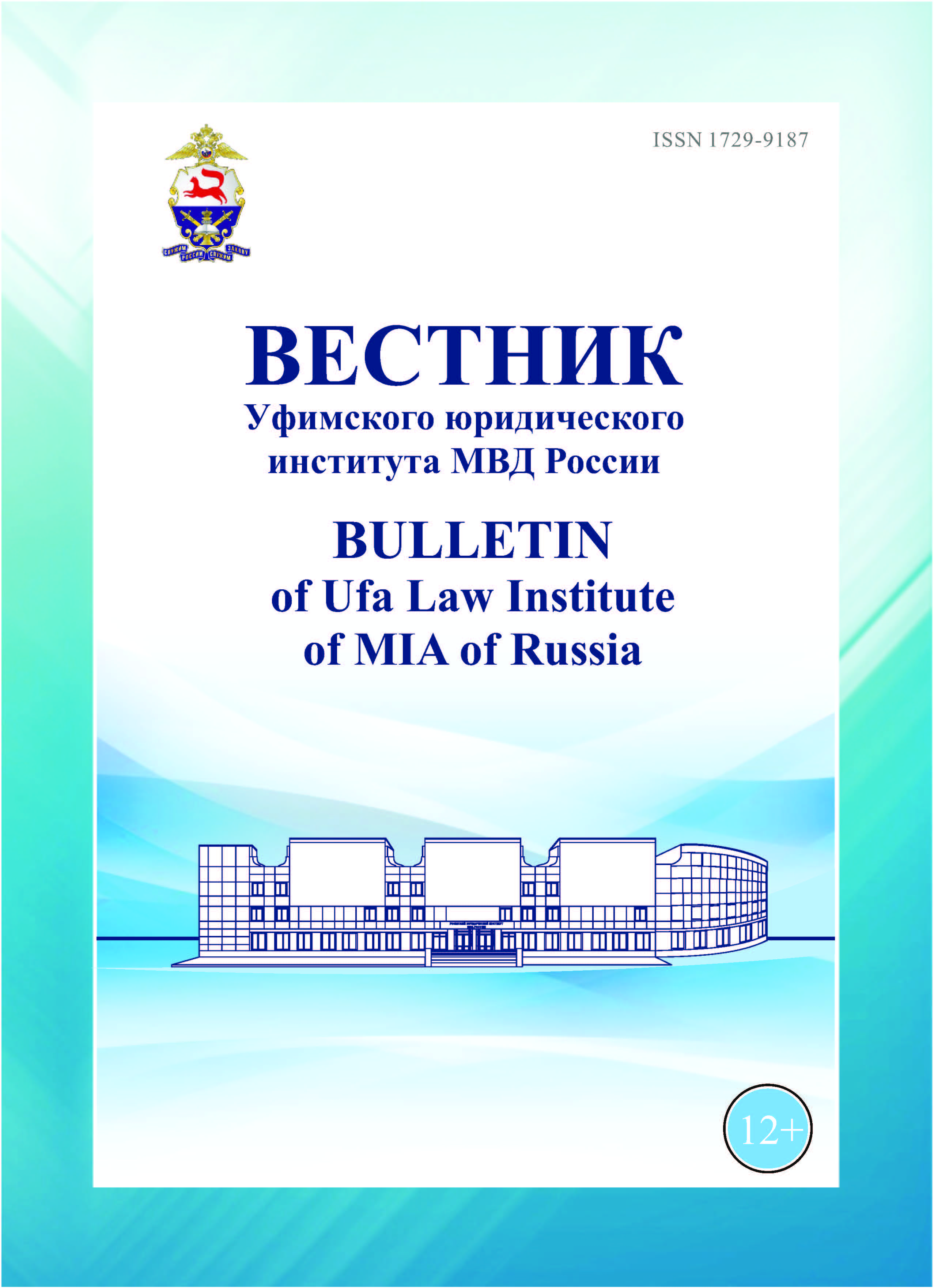Vologda, Russian Federation
Vologda, Vologda, Russian Federation
VAK Russia 5.8.7
UDC 376
The relevance of the stated topic lies in the need for cadets of educational institutions of the Federal Penitentiary Service of Russia to understand the importance of performing official duties while serving on daily duty. The article under consideration presents an analysis of the history of the emergence and development of service activities in the form of daily assignments from the time of the creation of the regular army in Russia to the present. Preparing cadets for the conditions of service in practical bodies of the penal system includes the performance of official tasks - serving in daily work. A critical analysis of the features of training cadets during the organization of daily duty service was carried out. Going on duty as part of a daily assignment orients cadets to find an opportunity to distribute their resources and adaptive capabilities in order to conscientiously perform their duties and properly organize their own activities. The analysis of the results of an empirical study of the characteristics of cadets’ ideas regarding subjective problems and internal resources necessary when preparing for service as part of a daily squad is presented. The article was prepared using generally accepted scientific methods: analysis of psychological and pedagogical sources, logical generalization, semi-structured interview.
service, daily duty, training, discipline, security, Armed Forces of the Russian Federation, Federal Penitentiary Service of the Russian Federation
1. Grishchenko V. V. Features of training law enforcement officers to act in emergency situations // Education. Science. Scientific staff. 2019. No. 1. P. 89–93. (In Russ.)
2. Sobolev N. G. On the issue of professional motivation of cadets of educational institutions of the Federal Penitentiary Service of Russia // World of Science. Pedagogy and Psychology. 2023. Vol. 11. No. 4. URL: https://mir-nauki.com/PDF/68PSMN423.pdf (access date: 05.12.2023). (In Russ.)
3. Chirkov A. M., Kovalev S. V. Development paradigm in the social and pedagogical function of Vologda Institute of Law and Economics of the Federal Penitentiary Service of Russia // The penitentiary system of Russia in modern conditions of social development: from the paradigm of punishment to correction and restoration. 2021. P. 203–217. (In Russ.)
4. Shiryaev D. A., Yanchenkov Yu. A. On the issue of involvement of cadets of higher educational institutions of the Federal Penitentiary Service of Russia in military training // Education. Science. Scientific staff. 2021. No. 4. P. 23–30. (In Russ.)
5. Sakovets I. N. Ways of committing and concealing violations of the statutory rules of relations between military personnel // Bulletin of the Siberian Law Institute of the Ministry of Internal Affairs of Russia. 2023. No. 1 (50). P. 52–65. (In Russ.)
6. Vitushkin A. V. Features of fire training of an employee of the penal enforcement system // Bulletin of Kuzbass Institute. 2017. No. 4 (33). P. 11–23. (In Russ.)
7. Leshchina E. L. The system of disciplinary penalties applied to civil servants of the Russian Federation // Legal science and law enforcement practice. 2019. No.1 (47). P. 45–50. (In Russ.)
8. Vashaev M. A. On the issue of strengthening disciplinary responsibility for violation of the rules of service in a daily detail for the protection of their own facilities by cadets and students of educational organizations of the Ministry of Internal Affairs of Russia // Bulletin of the KRU of the Ministry of Internal Affairs of Russia. 2018. No. 1 (39). P. 56–67. (In Russ.)
9. Panarin D. A., Lukanin V. V. The experience of spiritual and moral education of cadets on the example of the Academy of the Federal Penitentiary Service of Russia // Man: crime and punishment. 2017. Vol. 25 (1–4). No. 4. P. 681–684. (In Russ.)
10. Savich I. I., Shchekotov V. V. The influence of psychological aspects of communication on the professional development of an officer // World of Science. Pedagogy and psychology. 2022. Vol. 10. No. 1. https://mir-nauki.com/PDF/28PSMN122.pdf (access date: 05.12.2023). (In Russ.)
11. Protasova G. V. Development of professional and personal qualities of future psychologists in the process of studying at higher educational institutions of the Ministry of Justice of the Russian Federation. diss. ... cand. psychological sciences. Ryazan, 2004. 277 p. (In Russ.)
12. Kovalev O. G., Yemelyanov S. N. Professional culture of an employee of the penal enforcement system. Psychological and pedagogical issues and problems of formation. M.: Human Rights, 2003. 65 p. (In Russ.)
13. Kokurin A. V., Petrov V. E. Personal characteristics of military personnel and law enforcement officers, determining psychological readiness for service with firearms // Lex Russia (Russian law). 2018. No. 9 (142). P. 119–128. (In Russ.)









